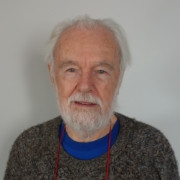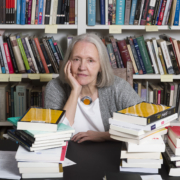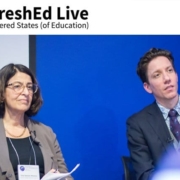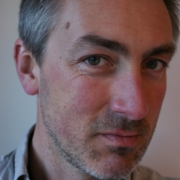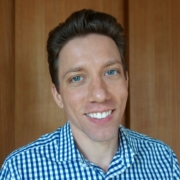Celebrating 200 Episodes
Looking Back, Looking Forward
Today is the 200th episode of FreshEd! To celebrate this milestone, we take you behind the scenes to meet our talented team: Lushik Wahba, Sherry Yang, Hang Duong, Fatih Aktas, Injung Cho, Iveta Silova, Yuto Kitamura, David Edwards, Arathi Sriprakash, and Keita Takayama. These are the people who edit and produce episodes; the people who manage FreshEd’s social media; and the board members who provide guidance. This episode gives you a sense of the massive volunteer effort it has taken to get to 200 and describes where FreshEd aims to go in the future. Of course, none of this would have been possible without FreshEd’s dedicated audience. Thank you for the past 200 episodes!
Citation: Yang, Sherry, Harvey, David, Kitamura, Yuto, Takayama, Keita, Cho Injung, Aktas, Fatih, Edwards, David, Sriprakash, Arathi, Silova, Iveta, Wahba, Lushik, Duong, Hang, interview with Will Brehm, FreshEd, 271, podcast audio, May 25, 2020. https://freshedpodcast.com/celebrating200episodes/
Sherry Yang 1:40
Hi, my name is Sherry Yang. I’m one of the producers of the FreshEd team. Right now, I’m sitting in my room in an international dormitory in Tokyo University in Japan. I started my FreshEd journey when I was a master’s student. I joined simply because I wanted to learn more about education, and I was always fond of listening to radios and podcasts. My main work is editing shows and posting them and also translating and proofreading works on Chinese translation, which we started recently with our amazing translator, Dian Jiang. My favorite episode of all time is the conversation with Professor David Harvey at our 100th Episode.
Will Brehm 2:27
FreshEd listeners, it’s Will here. Today marks the 100th episode of FreshEd. David Harvey, welcome to FreshEd.
David Harvey 2:35
Thank you.
Will Brehm 2:37
So, here we are sitting in Musashi University…
Sherry Yang 2:41
I’m really glad to have the chance to use my amateur editing skills to make some contribution to the field of education, which I have great passion about it. And it’s been a such great pleasure and learning opportunity for me.
Will Brehm 2:58
Also based in Japan are two members of our board of directors.
Yuto Kitamura 3:05
My name is Yuto Kitamura. I’m a member of the Board of Directors for FreshEd. I’m sitting right now in my room in Tokyo, Japan. It’s somehow quiet for last few weeks because people basically stay home due to the Coronavirus. This is really a challenging time. Not only in Japan but across the world. I know many people have been struggling. I do hope things get better and education somehow will create the important laws to overcome the situations as well. I support FreshEd as a board member. And I’ve been involved in this wonderful project from the beginning when Dr. Will Brehm started the project. I used to work with him very closely at the University of Tokyo. And when he was working at the University of Tokyo, he came up with the idea of launching FreshEd. So, I have been discussing with him about the idea and I’ve been supporting him from the beginning. I have been so fascinated by listening to some of the legends in the field of comparative education talking about their works, their experiences, and even their life in this FreshEd. I call them legends because even about 25 years ago when I was a graduate student, they were already the superstars in the field of comparative education. And I read a lot of their articles and books, and I was so fascinated, and I really appreciated that I could actually listen to their voices. I think FreshEd is very important to deliver the actual voices of the scholars, practitioners, and experts in the field of education around the world. So, we can really, really listen to their insights from the dialogue that Dr. Brehm has been conducting and initiating. Lastly, but not the least, I really appreciate Dr. Will Brehm for this wonderful, wonderful project and I promise to continue supporting him.
Keita Takayama 6:05
My name is Keita Takayama. I am one of the board of directors for FreshEd. I am at the moment sitting at one corner of our living room at home where I hear my daughter talking to her teacher and classmates online as she’s engaged in the virtual classroom. So, I probably have to be a bit quiet here. I don’t remember first time I heard about FreshEd, but it was a long, long time ago. I have known about it from the time when Will was just starting up. But I never imagined that he would end up developing something like what FreshEd is like today. I work for FreshEd because I think what he and his team are doing is wonderful. I remember listening to many, many episodes of FreshEd. So, there are simply too many to list here. To me, what’s important about FreshEd is that it does what it claims: that is to make the complex ideas easily understandable. And it’s a fantastic teaching resource for me. I always get something beyond what the authors write by listening to the shows.
Will Brehm 7:22
Our team has always been scattered across the globe. We were actually quite adept at working online when the pandemic hit. Take our social media coordinator, who started working for FreshEd in Japan, then moved to Indonesia, and is now in South Korea. Regardless of location, work for FreshEd always continues.
Injung Cho 7:46
My name is Injung Cho, and I am sitting in my room in Korea being quarantined for two weeks as I just returned from Jakarta. I began to be a part of the FreshEd team since March 2019 when I was a master’s student in Waseda University in Japan. And I was looking for an opportunity to cultivate my professional skills and understand what it would look like working in the education field. I am working as a content developer for FreshEd. I have so many episodes that I love. But among all, my all-time favorite is Professor Sommer’s, Education, Gender, and Sexual Health, where she talks about teaching body changes by removing fear and shame, and providing empowerment through puberty books for girls and boys.
Will Brehm 8:33
Today we discuss education, gender, and sexual health. My guest Marni Sommer has helped develop puberty books for boys and girls in low-income countries.
Marni Sommer 8:45
And it really is super important to us that each book is developed in that country because I feel very strongly that the only way it will be meaningful to that country -to the girls in that country, to the teachers and government- is if they feel it really reflects girls’ experiences and their own societies.
Will Brehm 9:01
Marni Sommer is an associate professor of sociomedical sciences at the…
Injung Cho 9:06
For students, professors, and people working in education, FreshEd episodes are great sources as teaching and learning materials, research inspiration, academic motivation, and more.
Will Brehm 9:20
Now we head over to Turkey, where the newest member of our team lives.
Fatih Aktas 9:24
My name is Fatih Aktas. I am sitting at my apartment on my university campus right now. The campus has been very silent these days. The Coronavirus pandemic pushed universities to shift classes online and there are not many people around. I am enjoying every minute of my work in FreshEd since I joined the team in January of 2019. My role in FreshEd is to contribute to the project as a researcher. I collaborate with the team to develop interview questions, as well as find guests for upcoming shows. I work for FreshEd because its mission and values resonate with me. Making ideas in educational research more accessible and unraveling their complexity through conversations with expert academics in the field is a valuable endeavor. About my favorite episode of all time: I think I will go with Angela Little’s Defining the Field of Comparative Education episode.
Angela Little 10:33
For me comparative education is about extending the boundaries of our knowledge about education. Moving it beyond national systems of education. It’s about making something that appears to be rather unfamiliar, studying it, making it familiar, and in the process of making it familiar, possibly making what originally was familiar, making that rather strange.
Fatih Aktas 11:00
I always add this episode to my comparative education course syllabus. I can see that FreshEd has been incorporated in some courses, either included on course syllabus or introduced as optional learning material. And I hope that the use of FreshEd on educational-related courses has become more widespread.
Will Brehm 11:26
Let’s head further west to meet a few more of our Board of Director members who are based in Europe.
David Edwards 11:32
My name is David Edwards, and I am on the FreshEd board of directors. Right now, I’m sitting at my house in Brussels, Belgium and I am in the quarantine and listening to my family, I think, make lunch in the kitchen and discuss their virtual education travails. I first heard about FreshEd through my friend Hugh, who recommended, many couple years ago, that I started listening and I subscribed. At that time, I think Susan Robertson was the first one I listened to. I always love listening to Susan Robertson.
Will Brehm 12:17
Susan Robertson, welcome back to FreshEd.
Susan Robertson 12:20
Thank you, Will. Very nice to be back here. Although what we’re going to be talking about, I’m not sure really, that was what I anticipated my return might be about.
Will Brehm 12:30
I know it’s been a crazy last few days watching what’s been unfolding in Britain.
Susan Robertson 12:37
The UK has voted in a referendum by 52% voting to leave and 48%, which is now a significant margin voting to…
David Edwards 12:51
What is so important about FreshEd? I think it’s important because it cuts through a bunch of jargon, and at the same time introduces research issues that are meaningful for people. And you hear from the researchers themselves. And it doesn’t shy away from theory and difficult questions. And I think that for the field of comparative international education, the debates are increasingly more and more important.
Arathi Sriprakash 13:34
Hi, my name is Arathi Sriprakash and I’m on the board of directors for FreshEd. I’m sitting in my living room right now in Cambridge and I can hear my daughter painting with her watercolors. I’m really thrilled to be part of FreshEd. It’s been an amazing teaching and learning resource over the years. And the thing that’s so important about FreshEd is its openness. Its accessibility and openness not just to people but to ideas, to debate, and dialogue. And I think as we head into a future where knowledge is evermore mediated by industries and capitalism, this focus on openness and critical dialogue and debate will be ever more important. So, I’d just like to thank all the contributors and listeners to FreshEd for making this resource come alive for us.
Will Brehm 14:30
Now, let’s continue our global tour of FreshEd in the United States where we have a board member and two producers.
Iveta Silova 14:41
My name is Iveta Silova and I’m one of the advisory board members for FreshEd. I’m sitting right now in my backyard, quarantined like everybody else. And I’m located in southwest Arizona, in the Sonoran Desert. I hear a lot of bird activity around me. In the backyard, we have several very large trees, and the birds are building nests there. So, I’m listening in to some of the conversations that they’re having. I first heard about FreshEd probably right around the time when Will Brehm was dreaming FreshEd into existence right after he moved to Tokyo, Japan. I do a variety of different things for FreshEd ranging from reviewing budgets to brainstorming new ideas for shows, to thinking about new configurations such as FreshEd live and what this could mean moving forward in the context of quarantine. I’m very excited to be a part of the FreshEd team because I find this community very intellectually stimulating. I like being connected to a group of such open-minded people that are very eager to explore various ideas in education, and also work together to envision education differently. There are lots of things that are important about FreshEd but to me, probably the most critical one is the very personal connections that FreshEd establishes between the academic work of various scholars and practitioners and people involved in education advocacy, and the connections between their work and who they are personally. I really like listening to the very personal experiences behind the work that people do. It helps explain why people do the research that they do, why they practice in particular ways. And I think this makes the academic work and the practitioner work as well much more personal and much more engaging to me.
Lushik Wahba 17:08
Hi, this is Lushik. Right now, I am in Washington DC and the sounds I hear are mostly construction. I will take you outside so you can hear them too. I don’t know if you hear that but it’s pretty loud. I am one of the FreshEd producers. And that means I edit weekly episodes on a rotating basis. And I also produce special shows. I first heard about FreshEd from one of my mentors, Yuval who was on the FreshEd team at the time. And that was in 2018. I think FreshEd is important because it makes academia accessible. And that is something that I struggled with when I went to college: was finding that the more I immersed myself in theory, the less I was able to connect with friends and family I knew, which is often a problem faced by first-generation kids at college, or low-income students. But I found that as I was grasping these academic concepts, they definitely had wider applicability and I felt like I wanted to get those concepts out into the world to as many people as possible. That’s one of the reasons I joined FreshEd but that’s also one of the reasons why FreshEd is extremely important. Because it is opening up access to academia, a field that has been closed off for so many people for so many years. And now anyone can tune in and listen to an author or policymaker talk about their work, their research.
Hang Duong 19:19
Hi, everyone, my name is Hang. I’m a postdoc researcher at University of Minnesota. Currently, due to COVID-19, I’m working from home, based in Houston, Texas. So, I’m one of the three editors of FreshEd and we take turns to edit the shows based on our availability and interest in a particular show. I was also a social media coordinator last year helping to spread the information about the shows and events produced by FreshEd, and to get more audience to listen to our shows. And I also help transcribe and translate some of the shows when I have more time. So, I was involved in FreshEd and seeing as I was a PhD student. I studied at Lehigh University where Will Brehm got his master’s degree. So, we kind of know each other. What are the favorite episodes that I’ve worked on so far? Well, you know, we are not professional editors but for me, I have many wonderful experiences editing the shows. And one of my favorite episodes so far may be the recent episode, which I remember 196. It is an interview with Armand Doucet about teaching and learning in the COVID-19 times.
Armand Doucet 21:09
I think this pandemic is giving us the opportunity to realize how connected we are and what global solidarity truly means. And we have these large questions and sustainable questions that need to be answered. But I think maybe this is the first step. This is like a…
Hang Duong 21:26
You know, Armand spoke from his home where he was taking care of his baby son. And I think that is the very first ever episode interviewing a scholar in that situation, you know, with a lot of noise, bumping, stumbling, and baby screaming and several times of interruption. So, actually, Armand was not really kind of focused all the time during the interview. But while I was editing, I purposefully left the noise as it was. So, it sounded kind of authentic and natural. I like this episode, not only because of the content, but also because of the situation where we are now, which is very challenging, and many of us, who are researchers and scholars, have to stay at home. So, the show really resonates with me, who is a mother-researcher, and I know that we need to manage multi-tasks because our children are up from school. So, it is not really easy for many of us, particularly during this challenging time.
Will Brehm 22:56
COVID-19 has moved many of our daily activities online. Increasingly common are Zoom lectures, Zoom coffee breaks, and Zoom happy hours. My parents even attended a Zoom funeral. Strangely enough, though, FreshEd has always occupied a digital space. We’ve always been online. And we’ve actually been trying to break out of it. Last year in 2019, we held a live event that aimed to create a physical space for this digital medium of podcasting.
Jonas Max 23:29
…at CIES for this very exciting moment. And my name is Jonas Max. I am the Executive Director of NORRAG. So, we are very pleased to partner with FreshEd tonight. And to bring actually -this is a historical moment for you, from what I understand- the first live FreshEd, and it also marks the 150th episode of FreshEd. Congratulations. It began in 2015 and it has been downloaded for more than 200,000 times so far by people across the world -students, teachers and the general public alike. Tonight, FreshEd host, Will Brehm will speak with the director of NORRAG, Professor Gita Steiner-Khamsi. To college Columbia,
Will Brehm 24:21
The event in San Francisco was not only the first time that FreshEd was in a physical space but also the first time our whole team got to meet in person after working together for so many years online. It was really a wonderful moment. Sadly, though, it might be our last. COVID-19 has interrupted the planning of all of our future live events. But the pandemic has actually been an opportunity for FreshEd too. It’s given us time to think about our future in new ways, and about what we truly value as a podcast. Here’s where the team hopes to see FreshEd in the future.
Sherry Yang 24:59
Well, in the future, I’d like to see more interactions with our listeners. And I’m hoping more and more scholars, researchers and students can get involved in the FreshEd podcast and can be part of this interesting global communication.
Yuto Kitamura 25:17
I hope to see more expansion of FreshEd. We’ve been discussing about how to expand FreshEd. Maybe having more various languages available. And also, even video recording. In some of the interviews I wish to see the faces of these scholars and experts. Of course, it’s already good enough to listen to their voices. For some of the interviews, it may be good to have some of the video as well. Anyway, there must be much more ideas on how to improve FreshEd in the future. I do hope more people join and support, and even work with FreshEd.
Keita Takayama 26:19
I would like to see FreshEd continue with what it has been doing. But I’d also like to see more authors. Non-native speakers of English based in non-English speaking parts of the world beyond the usual anglophone countries to be interviewed.
Injung Cho 26:40
I hope that FreshEd could build such a domain where scholars, listeners and the FreshEd team could engage with each other about your ideas and feedbacks. I also hope that FreshEd will keep inviting more professionals in various ethnic and cultural backgrounds or having hands-on experiences from working in the fields.
Fatih Aktas 27:01
I also would like to see that FreshEd will continue transcribing episodes and translating them in some other languages, which will help us more to build a diverse set of audiences.
David Edwards 27:18
I’m quite excited about the idea of multiple languages and language platforms so that researchers in countries that are not exactly resource flush, can have access both in terms of sharing their own thinking and work, as well as learning and building on that work that others are doing in a way to deepening the understanding and the knowledge is constructed in a more equitable and distributed way for the benefit of our societies.
Iveta Silova 27:58
There are so many fascinating things that FreshEd could do in the future. But I think first and foremost, it should continue to move forward to its very bold vision of making complex academic ideas easily understood by a broader audience. But in the same vein, I’m also wondering if FreshEd could try to think about linking more directly to various communities that are working on very similar issues as we are in the field of education. So, for example, when we try to re-envision the future of education, very similar efforts are also going on among other groups. Like in the film, or in the art communities, or in the literary communities as well. In particular, for example, about so many science fiction writers who make very, very radical and bold attempts to re-envision the future and very often also bringing in education as one of the contexts that they’re thinking through. So, I think it would be really fascinating for FreshEd to not only stay within the academic community but also explore potentially the links to all of these other like-minded communities whether it’s film or art, or literature, or other genres.
Lushik Wahba 29:23
For the future, I think I’d like to see FreshEd produce more shows in collaboration with other platforms. I really enjoyed our collaboration with Arizona State University, for which you may remember, the climate and education episode. That was really fun to produce. And it allowed us to not simply present an idea or a piece of work but look at education from a very critical lens.
Hang Duong 29:57
In the future, I would love to see more interaction from our audience, especially those who are loyal listeners, like young researchers or scholars like us. So, if you’re listening to FreshEd, please feel free to send in questions, suggestions, or ideas. And these ideas will be considered to be included in our future interviews.
Will Brehm 30:35
Other future plans include: launching FreshEd in China on the WeChat platform later this year, redesigning our website to make past shows easier to find, starting new podcasts in other languages with new hosts, and producing new episodes on the pandemic. There’s a lot more to do and our experience over the past 200 episodes confirms our commitment to being an open access podcast without advertising. We will work towards decolonizing knowledge production across the world while still bringing new cutting-edge research in education. To do this takes more than a dedicated team. It takes a committed audience. So, thank you for your continued support in the show. I know we live in a difficult time. I know many people are struggling. And I hope that FreshEd can play a small part in helping you make sense of education in these turbulent times. So, thank you for the past 200 episodes, and I am so excited for our collective future.
Coming soon!
Coming soon!

